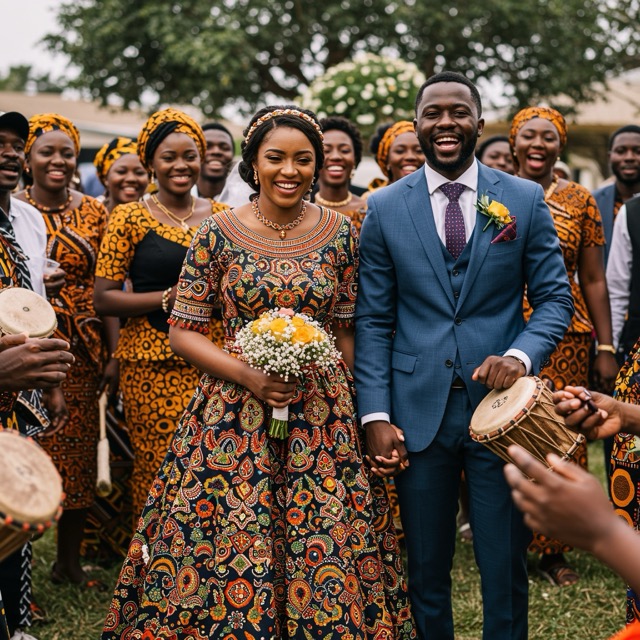In a gripping episode of IssuesPaneNyaya, hosted by Leandar Kandiero, a thought-provoking discussion unfolded around a controversial case that sparked heated debate. Tatenda, a man seeking to reclaim the lobola (bride price) and educational expenses he incurred for his wife, Deborah, after discovering she is unable to conceive, ignited conversations on the ethical and societal expectations surrounding marriage, infertility, and personal autonomy.
The Complexities of Modern Relationships
At the heart of the discussion lies the tension between traditional marriage expectations and the evolving dynamics of modern relationships. Tatenda’s demand raises crucial questions: Should marriage be viewed as a transactional agreement with financial and reproductive expectations? Alternatively, should it be rooted in mutual support, love, and personal growth?
The panel delved into the various dimensions of this case, highlighting the emotional trauma endured by both Tatenda and Deborah. While Tatenda expressed feelings of betrayal due to the lack of disclosure about Deborah’s infertility, Deborah faced immense public humiliation and emotional distress. Their predicament highlights the broader societal issues regarding transparency in relationships, the role of families in marital decisions, and the persistent stigma surrounding infertility.
One of the key takeaways from the discussion was the importance of honesty and transparency in relationships. However, the panel noted that the burden of disclosure often disproportionately falls on women. The expectation that women must fully disclose personal health matters before marriage, while men face fewer such demands, reflects an ingrained gender imbalance. The question remains: To what extent should personal health information be disclosed before marriage? While open communication is vital, individuals also have a right to privacy and dignity. This dilemma shows the need for mutual understanding and sensitivity when discussing sensitive topics such as reproductive health.
Cultural Expectations vs. Individual Rights
Tatenda’s claims also expose the deeply rooted societal pressures that equate a woman’s worth with her ability to bear children. The expectation that marriage is primarily for procreation continues to shape cultural narratives, often leading to unfair blame placed on women facing fertility challenges. The panel called for a shift in mindset, one that recognizes marriage as a partnership beyond childbearing. By challenging traditional norms that prioritize fertility over emotional and intellectual compatibility, society can move towards more inclusive and equitable perspectives on marriage.
The discussion further highlighted the role of family in marital disputes. Tatenda asserted that Deborah’s family was aware of her infertility before their marriage, suggesting an element of deception. However, the panel debated whether families should have such significant influence over personal matters. Rather than viewing marriage as a contract negotiated by families, the panellists advocated for couples to engage in open conversations independently. The discussion emphasized that while family support is important, individual autonomy must be respected, particularly when it comes to sensitive health matters.
Tatenda’s pursuit of financial reimbursement raises critical legal and ethical concerns. The discussion explored whether lobola and educational expenses constitute a binding agreement that can be reversed upon dissatisfaction. While some argue that these financial obligations should be repaid under specific circumstances, others contend that marriage should not be reduced to a financial transaction. This debate calls for a re-evaluation of cultural practices in contemporary society. Should lobola be redefined to reflect the evolving nature of relationships? Can financial investments in a spouse’s education be considered a shared benefit rather than a conditional contribution?
The Need for Education and Awareness
A significant takeaway from the discussion was the importance of educating society on infertility and reproductive health. Misconceptions and stigma often lead to emotional distress and fractured relationships. By involving medical professionals in discussions about fertility, society can move away from personal blame and towards a more informed and compassionate understanding of reproductive health challenges. The panellists emphasized the urgent need to shift societal perspectives on infertility. Instead of perceiving infertility as a personal failure, it should be recognized as a health condition that affects both men and women. Addressing this issue with empathy and medical insight can help reduce stigma and promote a supportive environment for couples facing fertility challenges.
This episode of Issues Panenyaya did more than just uncover the complex relationship between tradition, personal rights, and emotional well-being; it was a powerful call for change. By encouraging open, honest conversations about marriage expectations, infertility, and financial responsibilities, we can work toward building relationships that are more compassionate and understanding.
As our perspectives evolve, it is important to challenge outdated norms and advocate for a culture that value mutual respect, empathy, and personal choice. Marriage should not be defined solely by societal expectations, but by the values, understanding, and shared dreams of the people involved. This shift can help create healthier, more fulfilling partnerships.
